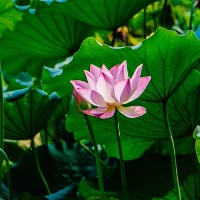Do you like winter colors? Here are the colors of winter arranged for you
idiom
I hope it can be a reference for you. 1. Holding the ice in cold winter, holding the fire in hot summer: It describes hard work and self encouragement.
2. Every winter and summer: See "No winter and no summer.".
3. Warm in winter and clear in summer: Winter warms parents, while summer cools them. This refers to filial piety of the Son of Man. It is also called warm in winter and cool in summer.
4. Ice and snow cover: everywhere is a vast expanse of white, surrounded by ice and snow, the ground is frozen, and snow is still falling overhead.
5. No winter, no summer: no matter in winter or in summer. It refers to the uninterrupted seasons.
6. Five winters and six summers: It is also said that neither summer nor winter. No matter when.
7. Autumn goes and winter comes: autumn goes, winter comes. Describe the passage of time.
8. Winter: December: December in the lunar calendar. It refers to the coldest December in winter.
9. Said by: Chiang Shiquan's Chicken Feather Room in the Qing Dynasty: "The wind is like a tiger in the snow and ice, and those who cry naked have no place to live.
10. Snowboarding: sadism: tyranny; Gluttony: avaricious. It's windy and snowy again. describe
weather
It's very cold. 11. October: October, November and December of the lunar calendar
weather
Cold season. 12. White snow: pure white, mostly used to describe frost and snow. The white snow shines brightly.
13. Cold mountain and cold water: cold and quiet. Describe the winter scene.
14. December: December of the lunar calendar. The end of a year.
15. Harvest in autumn and store in winter: autumn is the harvest season of crops, and in winter, fruits are stored for a year's needs. It is a metaphor for farming in a year.
16. Winter fur and summer fur: It comes from Huai Nan Zi's Spiritual Instruction: "Knowing the winter fur and summer fur is useless to oneself, then everything will become dust.
17. Powder jade masonry: decorated with white powder and built with white jade. It describes the snowy scenery and the white and tender skin of people.
18. Winter and summer clouds: the sun in winter, the clouds in summer. It is used to describe a person who has a mild and amiable attitude and is willing to approach.
19. Heavy snow: numerous and disorderly. The appearance of snowflakes falling in large quantities. It's snowing heavily.
20. Spring sprouts, summer grows, autumn harvests and winter hides: spring sprouts, summer grows, autumn harvests and winter stores. Refers to the general process of agricultural production. It also refers to the occurrence of things.
21. Three winters and two summers: three or two years.
22. Fat winter and lean year:
Southern Song Dynasty
There are many customs in the Wu area, such as the Winter Solstice and the New Year's Day. During the Winter Solstice, every family gives gifts to each other. There is a saying that "fat winter and lean year". See Song Wuming. 23. Lin Hanjian Su: Cold: Cold: Su: Cold. The woods and mountain streams were cool and silent.
24. Wind and snow: wind and snow hit at the same time.
25. Through the summer without winter: It means all the year round.
26. Cute in winter: like the sun in winter, it makes people feel warm and kind. This is a metaphor for people who have a gentle and loving attitude and are willing to approach.
27. Winter fan and summer stove: the metaphor is inappropriate.
28. Ice and snow cellar: It is described as extremely cold.
29. Wax gourd cursing: It refers to cursing this person on the surface, but actually cursing that person.
30. Goose feather heavy snow: refers to snowflakes falling like goose feather. The snow is heavy and fierce.
31. Cold weather: description
weather
Extremely cold. 32. Cold cicadas: cicadas are cicadas in cold weather. When it was cold, cicadas made a sad and deep voice. In literature, it is often used to set off the sad atmosphere and sentiment.
33. Winter Fur and Summer Ge: Fur: fur coat; Ge: Ge Ma Yi. It generally refers to beautiful clothes.
34. The vast expanse of snow: vast, vast and profound. The vast expanse of snow means that the snow is very heavy. It snows heavily in winter.
35. Mr. Dongyao: refers to the ignorant and superficial intellectuals.
36. Cold wind in north China: equivalent to cold wind. It is very cold in winter.
37. DongBake Brain: DongBake: pedantic, shallow. It refers to a person who is confused, stupid and unreasonable. It is also called "brain baking in winter".
38. Warm in winter and refreshing in summer: refreshing: cool. Winter warms parents and summer cools them. This refers to filial piety of the Son of Man. It is also called warm in winter and cool in summer.

